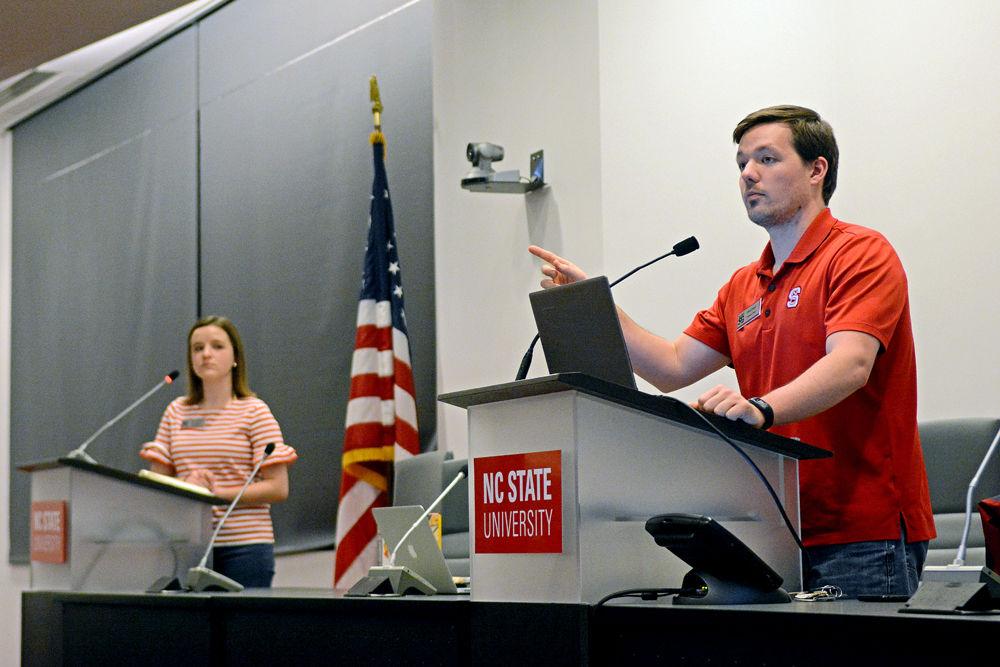As the 98th Student Government session nears its end, a budget for the upcoming year has been developed, aiming to formally set up campaign assistance funds for candidates in next year’s election and adjust appropriations funding to be the same between fall and spring semesters.
Student Body Treasurer Molly Mueller, a fourth-year studying political science and international studies, and Chris Poteat, chair of the SG Finance Committee and a third-year graduate student in chemistry, hosted a town hall event on Tuesday, Feb. 26 to explain the changes and answer student questions.
Compared to the 2018-2019 budget, there are minimal changes, Mueller explained. The total budget remains at $442,800, and student fees will not increase from this current year.
Stipends for student body officer positions will remain at $4,500 for the president, $700 for board of elections chair and $4,200 for other roles. Branch operations funding will also remain the same, Mueller said.
“For the most part, things are staying the same,” Mueller said. “We’re working with the same total amount as we were last year, so there’s nothing too dramatic.”
One of the most significant alterations to the budget deals with the Office Administration category, which will see a $2,500 drop in spending for this upcoming year, according to Mueller.
Mueller said that $2,500 previously went toward Get Involved voting software, which will no longer be SG’s responsibility to purchase.
“Student Government paid for the election software with Get Involved, but we’re no longer going to do that anymore because we aren’t the only ones that use it,” Mueller said. “[Student Involvement] is fully covering that.”
Following a plan by Student Body President Jess Errico, a fifth-year studying mechanical and aerospace engineering, to partially subsidize SG elections, $3,000 has been allocated specifically in the budget as “Campaign Assistance Funds.”
For this current election cycle, Mueller said a trial run totaling $1,900 in available assistance funds is underway, funded through the Executive Branch Operations line.
Student Senate President Adam Schmidt, a third-year studying civil engineering, inquired about changes to the SG Banquet category.
“I think in the past, we’ve seen banquet spending decrease significantly, and then we’ve seen it come back up in recent sessions,” Schmidt said. “I think it would be good for the committee to have a conversation on where we want to land.”
Mueller said that the reason for the increase was mainly due to funding issues encountered during the current session’s banquet.
The upcoming budget will also feature an even split between appropriations funding for the fall and spring semesters.
As this session draws to a close, several lines have unspent money remaining. Poteat clarified where this money will go at the end of the session.
“Any unused funds would go into a surplus bill, which typically goes into the next session’s appropriations or finance lines,” Poteat said. “This year, it is looking like that will go to what is called the general trust, which is basically our mandated reserves in case of an emergency. This means we would no longer have access to that.”
The mandated reserves is a pool of money every organization at NC State must have, Poteat said. Mueller said this money acts as a failsafe in case something catastrophic occurs.








